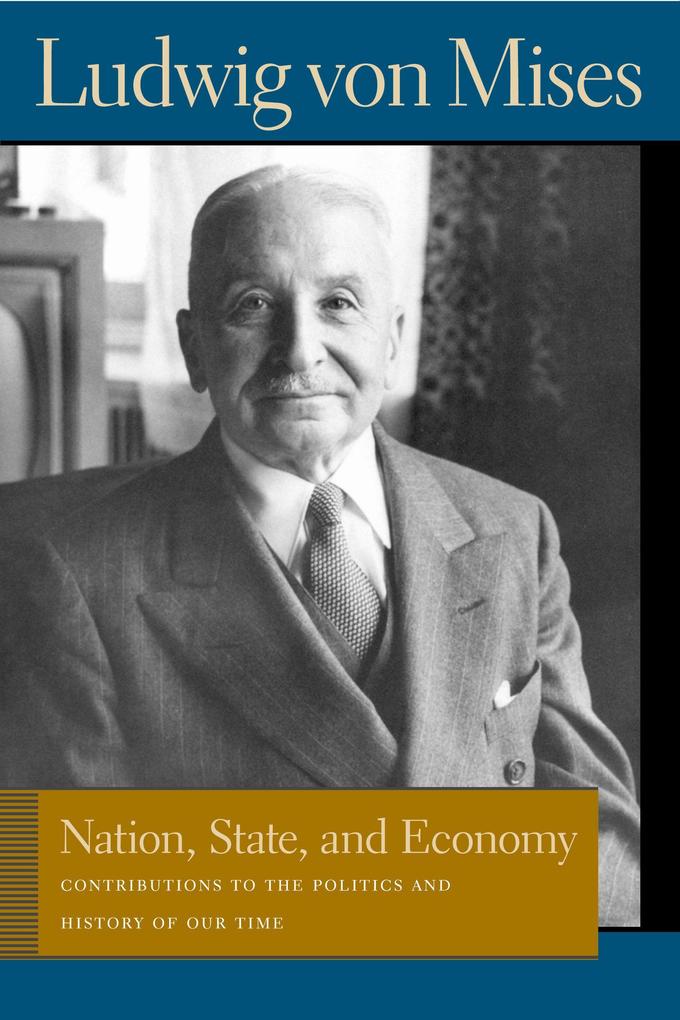
Zustellung: Di, 15.07. - Sa, 19.07.
Versand in 2 Wochen
VersandkostenfreiBestellen & in Filiale abholen:
Essential to Mises's concept of a classical liberal economy is the absence of interference by the state. In World War I, Germany and its allies were overpowered by the Allied Powers in population, economic production, and military might, and its defeat was inevitable.
Mises believed that Germany should not seek revenge for the peace of Versailles; rather it should adopt liberal ideas and a free-market economy by expanding the international division of labor, which would help all parties. "For us and for humanity," Mises wrote, "there is only one salvation: return to rationalistic liberalism."
Ludwig von Mises (1881-1973) was the leading spokesman of the Austrian School of economics throughout most of the twentieth century.
Bettina Bien Greaves is a former resident scholar and trustee of the Foundation for Economic Education and was a senior staff member at FEE from 1951 to 1999.
Mises believed that Germany should not seek revenge for the peace of Versailles; rather it should adopt liberal ideas and a free-market economy by expanding the international division of labor, which would help all parties. "For us and for humanity," Mises wrote, "there is only one salvation: return to rationalistic liberalism."
Ludwig von Mises (1881-1973) was the leading spokesman of the Austrian School of economics throughout most of the twentieth century.
Bettina Bien Greaves is a former resident scholar and trustee of the Foundation for Economic Education and was a senior staff member at FEE from 1951 to 1999.
Inhaltsverzeichnis
Introduction; NATION AND STATE -- Nation and Nationality; The Nation as a Speech Community; Dialect and Standard Language; National Changes; The Nationality Principle in Politics; Liberal or Pacifistic Nationalism; Militant or Imperialistic Nationalism; The Nationality Question in Territories with Mixed Populations; The Migration Problem and Nationalism; The Roots of Imperialism; Pacifism; On the History of German Democracy. WAR AND THE ECONOMY -- The Economic Position of the Central; Powers in the War; War Socialism; Autarky and Stockpiling; The Economys War Costs and the Inflation; Covering the States War Costs; War Socialism and True Socialism. SOCIALISM AND IMPERIALISM -- Socialism and Its Opponents; Socialism and Utopia; Centralist and Syndicalist Socialism; Socialist Imperialism. Concluding Observations; Index.
Produktdetails
Erscheinungsdatum
21. August 2006
Sprache
englisch
Seitenanzahl
220
Autor/Autorin
Ludwig von Mises
Herausgegeben von
Bettina Bien Greaves
Verlag/Hersteller
Produktart
kartoniert
Gewicht
410 g
Größe (L/B/H)
229/156/19 mm
ISBN
9780865976412
Bewertungen
0 Bewertungen
Es wurden noch keine Bewertungen abgegeben. Schreiben Sie die erste Bewertung zu "Nation, State, and Economy" und helfen Sie damit anderen bei der Kaufentscheidung.









